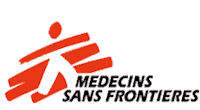 A couple of sample dilemmas faced recently in the clinical programmes of the medical humanitarian organisation Médecins Sans Frontières (MSF).
A couple of sample dilemmas faced recently in the clinical programmes of the medical humanitarian organisation Médecins Sans Frontières (MSF).
“This HIV positive woman in her first trimester of pregnancy is currently on an efavirenz-based regimen, what should we do?”
“The patient I just saw in clinic has HIV infection and is hepatitis C antibody positive; he is doing well on antiretrovirals. His liver function is mildly abnormal—he asked whether we can treat the hepatitis C. Can we treat hepatitis C in this country?”
Epidemiology done well asks important questions, and answers them reliably. But for healthcare workers in resource limited settings the evidence base to answer their questions is all too frequently weak. Systematic reviews and meta-analyses are a powerful way of informing policy and practice. And one aspect that sets systematic reviews apart from most other forms of research is that they can be done “for free”—if people with expertise are willing to donate their time. Currently, however, most expertise resides within academic institutions where time generally needs to be purchased. Research needs funding, and research questions need to match both the interests of academics and the calls for proposals from funding bodies. Important questions are left unanswered because they are less relevant in Western settings where resources are greater and alternatives are readily available.
A good example is whether efavirenz, an antiretroviral drug used to treat HIV/AIDS, is safe to give to pregnant women. Efavirenz is one of the best tolerated and most effective antiretrovirals. However, early studies in monkeys and retrospective human case reports suggested that it may be associated with an increased risk of congenital abnormalities—in particular, neural tube defects. Despite this very weak evidence, the US FDA reclassified efavirenz as class D (evidence of human foetal risk), and most treatment guidelines recommended avoiding its use in pregnancy.
This change had little consequence in Western settings as pregnancies are often planned, there is early contact with the health system and there are a range of alternative antiretrovirals to choose from. But in many parts of sub-Saharan Africa—where the HIV burden is greatest, women present late (if at all) to antenatal clinics and drug formularies are limited—the only alternative generally available is nevirapine, which is also associated with heightened risk during pregnancy.
And so, on the basis of just seven cases—three in monkeys, four in women—over the course of a decade many thousands of women were switched to a less effective drug with more clearly established safety concerns, and a number of pregnancies were needlessly terminated. A move towards resolving this issue began when an MSF initiated systematic review and meta-analysis showed no evidence of increased foetal risk. In June 2012, these results led the World Health Organization to publish programmatic guidance recommending that efavirenz be continued during pregnancy.
Here’s another example. Hepatitis C virus (HCV) is a disease of growing global health importance. 180 million people are estimated to be infected, most live in resource limited settings. Among international actors, including MSF, there has been a tendency to view treatment as too difficult to be contemplated, with too many side effects and poor outcomes. So MSF initiated a systematic review that amassed data on over 12 000 patients treated for HCV in low and middle income settings. Outcomes were found to be equivalent to those reported in high income settings, and side effects were infrequent and generally non-serious. As a result of this work, evidence based protocols are being developed and two programmes planned with a focus on HCV treatment.
What both these examples illustrate is that seemingly obvious and important questions can remain unanswered for many years. Health practitioners in resource limited settings cannot rely on the machinery of academia to turn its attention to such questions as they arise.
Every day in places where MSF works, from South Sudan to Zimbabwe, from Haiti to Burma, clinicians and programme managers face making decisions without an adequate evidence base. And patients, communities, and medical staff are left with unanswered questions about how best to manage health conditions or how to improve programme outcomes. Studies that help answer these questions may be carried out by academic units across the globe, but without a systematic appraisal of the evidence base, this evidence is either missed, or remains anecdotal.
A network of dedicated people who are willing to give some of their time to support knowledge synthesis would be a valuable contribution to improving health care in resource limited settings, and indeed globally—the first guideline to be revised following the publication of the review of efavirenz safety in pregnancy was not in Africa, but in the UK. Is it time to form “Meta-analysers without Borders?”
Nathan Ford is a research associate with the Centre for Infectious Disease Epidemiology and Research, University of Cape Town, South Africa. Formerly he worked for MSF as medical coordinator of the Access Campaign.
Philipp du Cros is an infectious diseases specialist who is currently head of the Manson Unit, MSF, London, UK.